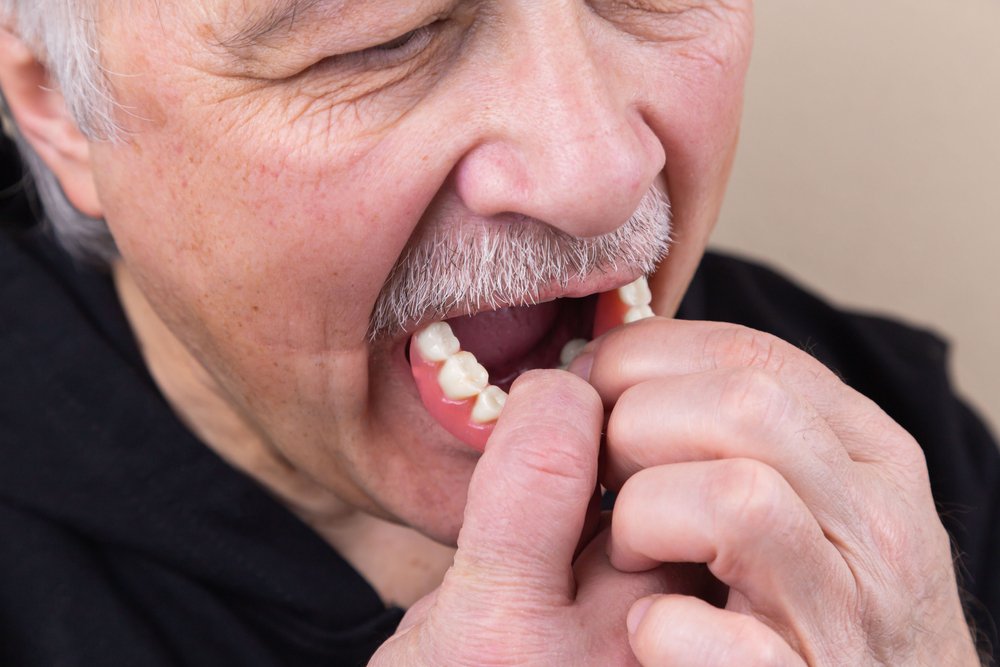Lower dentures can be a great solution for replacing missing teeth, improving your smile, and restoring your ability to speak and eat comfortably. However, they can sometimes present unique challenges compared to upper dentures. If you or a loved one is dealing with lower denture problems, understanding the potential issues and their solutions can make a significant difference in comfort and functionality. This SEO-friendly guide will explore the most common lower denture problems and offer practical solutions to help you manage them effectively.
Common Problems with Lower Dentures
- Poor Fit and Stability One of the most common problems with lower dentures is a lack of stability. Unlike upper dentures, which create a natural suction with the palate, lower dentures rest on the mandibular ridge and can easily shift or move.
- Sore Spots and Irritation Ill-fitting dentures can lead to sore spots and irritation on the gums. This discomfort may make it difficult to wear the dentures for extended periods or even cause pain when eating or speaking.
- Difficulty Speaking and Eating Lower dentures that don’t fit well can make it challenging to speak clearly or eat without the denture shifting. This problem can be frustrating and may lead to social discomfort.
- Bone Loss Over Time The lower jawbone can gradually shrink after tooth loss, affecting the fit of dentures over time. This process is known as bone resorption and can cause lower dentures to become loose or poorly fitting.
- Excessive Salivation or Dry Mouth Some people may experience changes in saliva production when adjusting to lower dentures. This can manifest as either excessive salivation or dry mouth, making it uncomfortable to wear dentures.
- Difficulty Keeping Dentures in Place Lower dentures are more prone to shifting when speaking or eating because they don’t have the same support as upper dentures. This can cause embarrassment and frustration, especially in public settings.
Effective Solutions for Lower Denture Problems
1. Dental Adhesives
Using a high-quality dental adhesive can significantly improve the stability of lower dentures. Adhesives work by creating a secure bond between the denture and the gum tissue, minimizing movement during eating or speaking.
- Pros: Easy to apply and provides extra security.
- Cons: Needs to be reapplied regularly and may require trial and error to find the best product.
2. Regular Denture Adjustments
Visiting your dentist for regular check-ups and adjustments is crucial. Dentures that become loose over time can often be relined or rebased to restore a better fit.
- Tip: Schedule a dental check-up every 6-12 months to ensure your dentures remain comfortable and effective.
3. Implant-Supported Dentures
For those experiencing persistent issues with stability, switching to implant-supported dentures may be a more effective long-term solution. These dentures snap onto dental implants anchored into the jawbone, providing superior stability and functionality.
- Pros: Improved stability, better chewing ability, and a more natural feel.
- Cons: Higher cost and requires minor surgery for implant placement.
4. Soft Liners for Comfort
Soft liners can be added to the base of the lower denture to provide a cushion between the denture and the gums. This helps reduce sore spots and irritation, making dentures more comfortable to wear.
- Best For: Individuals with sensitive gums or those prone to irritation.
- Maintenance: Soft liners may need to be replaced periodically.
5. Proper Cleaning and Maintenance
Maintaining good oral hygiene and cleaning your dentures regularly can prevent discomfort and other issues. Food particles and bacteria buildup can lead to gum irritation and infections.
- Cleaning Routine: Brush your dentures with a soft brush and mild denture cleaner daily. Soak them overnight in a denture-cleaning solution.
- Avoid: Abrasive cleaners and hard brushes that can damage the denture surface.
Lifestyle and Dietary Adjustments
1. Dietary Changes
Initially, eating with lower dentures may be challenging. Switching to softer foods and cutting your food into smaller pieces can make eating more manageable. Avoid sticky or hard foods that may dislodge your denture.
- Foods to Try: Mashed potatoes, scrambled eggs, soups, and smoothies.
- Foods to Avoid: Caramel, nuts, and hard-to-chew meats.
2. Practicing Speech
Speaking with lower dentures can be difficult at first. Practice reading aloud or repeating challenging words in front of a mirror to adapt your speaking style.
- Tip: Place a small amount of denture adhesive to help stabilize the lower denture when practicing.
Richmond Hill Smile Centre: Your Trusted Partner in Emergency Dental Care
When a dental emergency strikes in Richmond Hill, Richmond Hill Smile Centre is the clinic you can rely on for top-tier care. Conveniently located at 10157 Yonge St Unit 101, Richmond Hill, ON L4C 1T6, Richmond Hill Smile Centre is known for its prompt, compassionate, and expert handling of dental emergencies. Whether you’re dealing with a severe toothache, a broken tooth, or another urgent dental issue, the skilled team at Richmond Hill Smile Centre is ready to assist you.
Contact Richmond Hill Smile Centre at +1 647-362-4755 or via email at info@richmondhillsmilecentre.ca to receive the immediate care you need. Their dedicated team is committed to providing quick and effective treatment to alleviate pain and protect your dental health.
Coping with Bone Loss
1. Bone Grafts
If bone loss is significant and affects denture stability, your dentist may suggest a bone graft to rebuild the jawbone. This procedure can support the placement of implant-supported dentures, offering a permanent solution to denture instability.
2. Balanced Diet
Eating foods rich in calcium and vitamin D can help maintain bone density. Regular exercise, particularly weight-bearing activities, can also support bone health.
Commonly Asked Questions About Lower Dentures
Q: How long does it take to get used to lower dentures? A: Adjusting to lower dentures can take a few weeks to several months, depending on individual circumstances. Be patient and practice speaking and eating to help the process along.
Q: Can lower dentures be worn overnight? A: While it’s not harmful to wear dentures overnight, most dental professionals recommend removing them to give your gums a break and prevent infections.
Q: What if my lower dentures keep slipping? A: If your lower dentures are slipping frequently, consult your dentist. They may need an adjustment, reline, or you may need to consider implant-supported dentures for added stability.
Conclusion
Lower denture problems can be frustrating, but they are not insurmountable. By understanding the common issues associated with lower dentures and exploring the available solutions, you can significantly improve comfort and functionality. Whether through the use of dental adhesives, regular adjustments, or considering implant-supported dentures, there is a solution to match your needs. Always consult your dentist for personalized advice and recommendations to achieve the best possible results.



